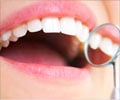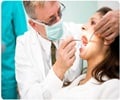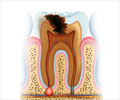- Dental abscess - (http://www.nhs.uk/conditions/dental-abscess/pages/treatment.aspx)
- About Tooth abscess - (http://www.nlm.nih.gov/medlineplus/ency/article/001060.htm)
- English HK, Pack AR, Molan PC. The effects of manuka honey on plaque and gingivitis: a pilot study. J Int Acad Periodontol. 2004 Apr;6(2):63-7. PubMed PMID: 15125017.
- Thosar, Nilima et al. "Antimicrobial Efficacy of Five Essential Oils against Oral Pathogens: An in Vitro Study." European Journal of Dentistry 7.Suppl 1 (2013): S71–S77. PMC. Web. 12 May 2015.
What is Tooth Abscess?
A tooth abscess or a periapical abscess to be more precise is an infection that affects the tooth and may also affect the gums. Toothaches are always painful and especially a tooth abscess can be extremely painful, leaving you almost incapacitated at times. A tooth abscess results from a bacterial infection of the tooth, usually resulting from a cavity or infection that was neglected. The problem is therefore most common in individuals with poor dental hygiene and in populations where there is poor or limited access to dental care.
A tooth abscess is problematic because it can cause complications and lead to many other dental health problems. As the tooth enamel gets damaged and deteriorates, the infection can also spread to the center of the tooth, known as the pulp. Once the infection reaches the root of the tooth it can even spread to the bones that support the teeth. While minor dental problems may cause dull and mild toothaches, an
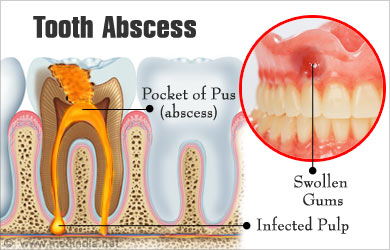
A tooth abscess is basically the most common variety of dental abscess. In medical terms it is referred to as periapical abscess, while the other type is called periodontal abscess. This type of abscess forms in the supporting bones and gums.
What are the Causes of Tooth Abscess?
In simple terms, a tooth abscess develops as a result of tooth decay. This typically occurs as a result of dental caries which causes destruction and deterioration of enamel, which is the hard protective outer layer of your tooth. This leaves the softer lower layer of tissue exposed. This layer is called dentine. With progressive deterioration of the tooth, dental caries will eventually get through this layer as well, to affect the center of the tooth (the pulp), causing pulpitis. When the pulp in the tooth dies, the chamber becomes infected and bacteria from here will even reach the bone.
When such an infection develops within the tooth it can cause severe tooth pain. The pain that radiates from the region is caused by the buildup of pus in the tooth and because of local inflammation and swelling. The pain may resolve if the pulp dies. But very often an abscess then develops and the infection will continue to cause painful symptoms and may even spread to infect the surrounding tissue.
Some factors that may increase your risk of developing a tooth abscess include:
Poor oral hygiene – This is the single biggest and most easily preventable factor that increases your risk of developing a tooth abscess. Individuals who do not brush and floss regularly are at a much greater risk of developing both types of dental abscesses.
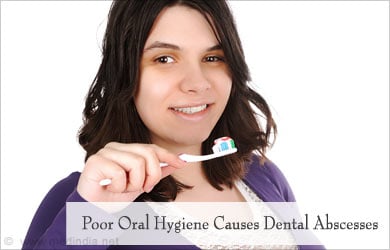
Dietary flaws – Unhealthy dietary practices don’t just affect your heart function and weight! Excessive consumption of sugar rich foods that are sticky like chocolates, sweets and candy can increase your risk of dental abscesses. Likewise, consuming sweetened drinks, including juices and carbonated drinks can increase the risk. Starchy foods like those made from processed flour including biscuits, pretzels and white bread are also known to increase the risk.
Weak immune function – Individuals with a weakened immune system are at a higher risk of developing a dental abscess. Immune function may be compromised because of pre-existing conditions like diabetes or AIDS, and the use of medications and therapies used to treat conditions like cancer and certain autoimmune diseases.
What are the Symptoms of Tooth Abscess?
The most noticeable symptom of an Tooth Abscess is intense pain in the affected tooth and surrounding region. This dull throbbing pain may be near constant, but it tends to ebb and flow, worsening every couple of hours or days. Toothache like this tends to radiate to other parts and you will very likely experience aches and pains in the jaws, neck and in the ears. Severe facial swelling, typical around the cheeks and jaws is also quite a common symptom of a tooth abscess.
You may also notice symptoms like:
- Increased sensitivity of the teeth and gums to extreme temperatures
- Tenderness in the affected area
- Halitosis

- General feelings of malaise
- Difficulty opening the mouth or swallowing
- Sleep disturbances
- High fever
There is a risk of the infection spreading to other parts of the body which is why you may experience symptoms like facial swelling, intense pain that is not responsive to pain medication, breathlessness and a fever with temperature going above 100.4°F.
How to Diagnose Tooth Abscess?
Your dentist shouldn’t have too much trouble arriving at a diagnosis and will usually use two methods:
- Physical examination generally involves tapping at the teeth to identify the problem, as an Tooth Abscess is a lot more sensitive and tender.
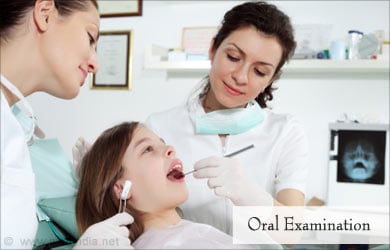
- Imaging tests like an x-ray may be requested to confirm the diagnosis of a tooth abscess and to check if the infection has spread to other parts.
What are the Treatments for Tooth Abscess?
Treatment for an Tooth Abscess typically begins with treatment aimed at clearing the site of infection. Treatment methods may vary depending on the extent of infection and how far it has spread. Treatment involves the use of dental procedures and antibiotics for Tooth Abscess.
Procedures to treat the Tooth Abscess could include:
Incising and draining the abscess: Your dentist will make small incisions into the abscess to evacuate the pus, after which the site needs to be rinsed with a saline solution.
Root canal: A root canal is often performed to salvage the tooth after the infection clears, but it is often used as the first approach to treat a tooth abscess. Your dentist will remove the infected dental pulp by drilling into the affected tooth and the abscess will also be drained simultaneously. The root canal and pulp chamber are then filled and sealed and the tooth is usually crowned to strengthen it. With proper dental care and oral hygiene, the tooth should serve you well the rest of your life.
Tooth extraction: Most often, the infection is too severe or has progressed too far for the tooth to be salvaged. Your dentist will be left with no choice but to extract the tooth and drain the tooth abscess in order to get rid of the infection.

Antibiotic medications: The use of antibiotic medications as a tooth abscess treatment is greatly restricted because it is far more effective to drain the infected tooth.
The rampant and irresponsible use of antibiotics over the past decades has led to a rise in bacterial resistance increasing the risk of infections and renders these antibiotics ineffective when they are actually required. Dentists generally do not recommend the use of antibiotics if the infection is limited to a single tooth. The use of antibiotics for tooth abscesses is best reserved for situations where the infection has spread or if the patient has a weak and compromised immune system.





